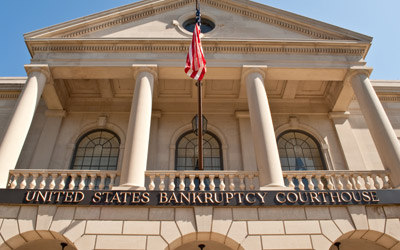FAQ'S
Senior Citizens and Bankruptcy
1. Should a senior citizen file for bankruptcy?
Many retired Americans are swamped in consumer debt, and many are forced to file for bankruptcy as a result. How do senior citizens who have always paid their bills on time, and have taken pride in having an excellent credit records get to the point that they need bankruptcy protection? In my experience, the older generations took take financial obligations much more seriously than the current one.
The major reason is skyrocketing health care costs and expensive prescription drugs. These expenses quickly add up and deplete many senior’s savings accounts. Moreover, these health care related bills force many seniors to “rack up” their credit card bills simply to stay alive. If the seniors don’t pay to visit their doctor or pay for their prescription drugs, then it is quite possibly that many senior debtors could die. Many seniors erroneously believed that their retirement could be financed solely on their Social Security benefits. Many seniors have learned a hard lesson that they did not adequately plan for their “golden years.” Family dynamics also often impact on the financial health of many seniors. Some retirees are drained financially by their adult children who still need them for financial assistance. Meanwhile, other seniors often face financial ruin when their spouse passes away.
Older Americans can have trouble getting adequate medical insurance coverage. Moreover, many seniors health plans do not cover prescription drugs. Many are forced to use their credit cards to pay for their medical treatment and for prescription drugs. Whatever the cause, many older Americans are finding themselves in serious financial turmoil, and they are turning to the bankruptcy courts for relief from the debts that are now overwhelming them.
Seniors who are in financial trouble are frequently very embarrassed, and they don’t know how to get help even if they have the courage to tell someone. Adult children often don’t know that their parents are hooked on credit cards, and that their finances are spiraling out of control. Unsolicited credit card offers flood mailboxes of consumers all over America and prey on the vulnerable. When older people are unable to make ends meat any other way, they often accept these offers and quickly max out the cards, and they never realize that the high interest rates on these cards are “eating them alive.” As they accept more offers and try to keep up with minimum payments on the accounts, the balances continue to grow.
Some older Americans have taken out mortgages and second mortgage loans to try to keep up with their expenses, to pay for health care, and for long term care. Many have fallen prey to predatory lending practices, and they are now faced with foreclosure because they can’t make the payments. Moreover, given the current housing market crisis, their homes are simply not worth the amount that they owe on them.
I have seen a number of senior citizens call me for bankruptcy advice. Many seniors attempt to make large payments on large credit card debt from a modest cash flow, usually just Social Security income. Most seniors want to sincerely pay off their debts. However, given many senior’s financial circumstances, it is not possible to pay them off, nor smart to make any financial sacrifices to do so.
Many seniors have to endure the never-ending stress of dealing with overwhelming debt. Thus many seniors cut back on their food bill, reduce their medical treatment, and use their emergency cash reserves to try to pay off their credit card debt. Many seniors are very ignorant as to their legal rights when they are overwhelmed with credit card debt. The plain and simply truth is that most seniors are judgment proof. Being judgment proof means that your assets are protected from being seized by creditors.
2. Is social security income safe from credit card collectors?
Federal law makes your Social Security benefits exempt from levy, garnishment, assignment by regular creditors, and from the trustee in bankruptcy. The federal government can withhold some part of Social Security payments for taxes, student loans, or support, however. That means that even a creditor with a judgment cannot intercept your Social Security payments nor can they take the money from you after it has been paid to you. Additionally, if a bank account contains the proceeds from social security, then this bank account can’t be levied upon by a creditor. The fact that the bank account contains social security proceeds shields it from any collectors. It is important to note that if a senior owes alimony or back child support, then his social security can be garnished.
3. How should a senior resist over-aggressive collection agencies?
If a senior fall behind on his credit card bills, then a debt collector will use stress, fear and shame to force him to pay regardless of any other of his financial obligations. Many seniors are judgment proof. A collector can’t garnish a senior’s pension or social security check. Moreover, the local courts are very sympathetic to seniors. Nonetheless, most seniors simply can’t deal with all of the collection calls. Seniors often have their nerves “fried” when they have to deal with the collection calls. Bankruptcy is a smart option for many seniors. Why waste the last years of your life dealing with obnoxious debt collectors! Make the most out of your time on Earth, and wipe off your debt and have peace of mind once again.






